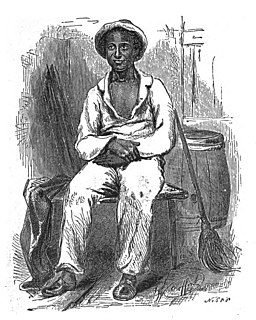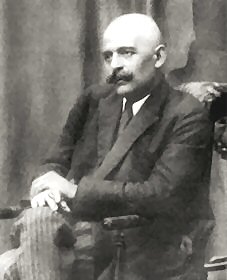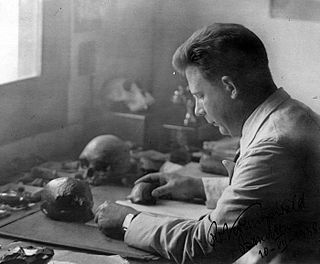A Quote by Swami Vivekananda
If you have knowledge and see a man weak, do not condemn him. Go to his level and help him if you can. He must grow.
Related Quotes
What a man does, that he has. What has he to do with hope or fear? In himself is his might. Let him regard no good as solid but that which is in his nature, and which must grow out of him as long as he exists. The goods of fortune may come and go like summer leaves; let him scatter them on every wind as the momentary signs of his infinite productiveness.
Often nothing keeps the pupil on the move but his faith in his teacher, whose mastery is now beginning to dawn on him .... How far the pupil will go is not the concern of the teacher and master. Hardly has he shown him the right way when he must let him go on alone. There is only one thing more he can do to help him endure his loneliness: he turns him away from himself, from the Master, by exhorting him to go further than he himself has done, and to "climb on the shoulders of his teacher."
[T]he essence of belief is doubt, the essence of reality is questioning. The essence of Time is Flow, not Fix. The essence of faith is the knowledge that all flows and that everything must change. The growing man is Man Alive, and his "philosophy" must grow, must flow, with him. . . . the man too fixed today, unfixed tomorrow - and his body of beliefs is nothing but a series of fixations.
Man's mind is his basic tool of survival. Life is given to him, survival is not. His body is given to him, its sustenance is not. His mind is given to him, its content is not. To remain alive, he must act, and before he can act he must know the nature and purpose of his action. He cannot obtain his food without a knowledge of food and of the way to obtain it. He cannot dig a ditch-or build a cyclotron-without a knowledge of his aim and of the means to achieve it. To remain alive, he must think
If your enemy is secure at all points, be prepared for him. If he is in superior strength, evade him. If your opponent is tempermental, seek to irritate him. Pretend to be weak, that he may grow arrogant. If he is taking his ease, give him no rest. If his forces are united, separate them. If sovereign and subject are in accord, put division between them. Attack him where he is unprepared, appear where you are not expected.
At such times, the heart of man turns instictively towards his Maker. In prosperity, and whenever there is nothing to injure or make him afraid, he remembers Him not, and is ready to defy Him; but place him in the midst of dangers, cut him off from human aid, let the grave open before him, then it is, in the time of his tribulation, that the scoffer and unbelieving man turns to God for help, feeling there is no other hope, or refuge, or safety, save in his protecting arm.
You can t, in sound morals, condemn a man for taking care of his own integrity. It is his clear duty. And least of all can you condemn an artist pursuing, however humbly and imperfectly, a creative aim. In that interior world where his thought and his emotions go seeking for the experience of imagined adventures, there are no policemen, no law, no pressure of circumstance or dread of opinion to keep him within bounds. Who then is going to say Nay to his temptations if not his conscience?
The attainment of knowledge is the high and exclusive attribute of man, among the numberless myriads of animated beings, inhabitants of the terrestrial globe. On him alone is bestowed, by the bounty of the Creator of the universe, the power and the capacity of acquiring knowledge. Knowledge is the attribute of his nature which at once enables him to improve his condition upon earth, and to prepare him for the enjoyment of a happier existence hereafter.
It is of dangerous consequence to represent to man how near he is to the level of beasts, without showing him at the same time his greatness. It is likewise dangerous to let him see his greatness without his meanness. It is more dangerous yet to leave him ignorant of either; but very beneficial that he should be made sensible of both.
Some souls think that the Holy Spirit is very far away, far, far, up above. Actually he is, we might say, the divine Person who is most closely present to the creature. He accompanies him everywhere. He penetrates him with himself. He calls him, he protects him. He makes of him his living temple. He defends him. He helps him. He guards him from all his enemies. He is closer to him than his own soul. All the good a soul accomplishes, it carries out under his inspiration, in his light, by his grace and his help.
Man did not address his inquiries to the earth on which he stood until a remarkably late stage in the development of his desire for knowledge. And the answers he received to the questions, "Where do I come from?", "What is man?", although they made him poorer by a few illusions, gave him in compensation a knowledge of his past that is vaster than he could ever have dreamed. For it emerged that the history of life was his history too.





































